Next Sohee (2022), the first Korean film to close the Cannes Film Festival, illuminates the emotional toll exploitative working conditions take on young people, contributing to their rising suicide rate. Less than a year after its release, Korean law was revised to better protect young workers.
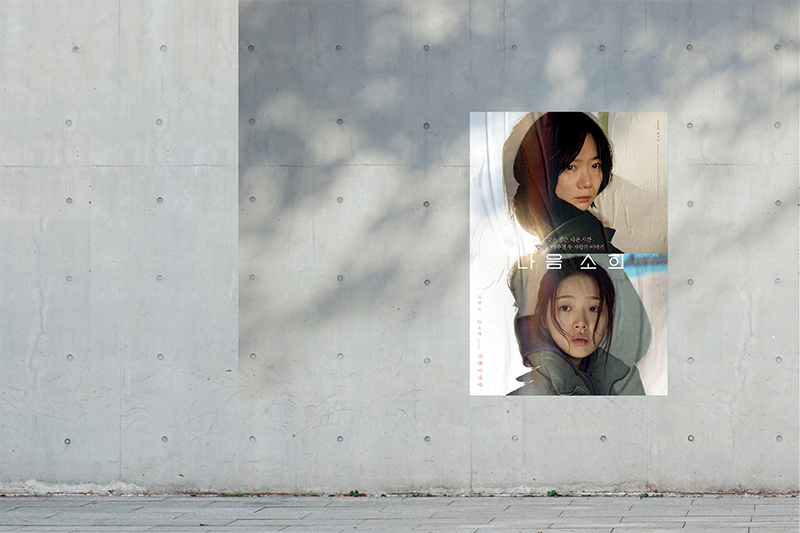
The film Next Sohee revolves around a high school student who worked at a call center and the police detective seeking answers to her suicide.
© TWINPLUS PARTNERS INC.
As the Credits rolled for Next Sohee, the official closing film of the 75th Cannes Film Festival in 2022, a seven-minute standing ovation was dotted with tears. The reaction far exceeded the response to Decision To Leave (2022) and Broker (2022), the two Korean films invited to the festival’s “In Competition” section. As the admirers exited, they clapped spontaneously in front of Korean press cameras, shouted “bravo,” and raised their thumbs in approval. While standing ovations are a staple of film festivals, such enthusiastic appreciation outside the theater underscores how well the film was received.
Emmanuel, a French journalist, could barely speak, swallowing his sobs. “It really hurts. It’s a very, very good film,” he said. “Through films like this, we connect with each other,” said Elly, from Belgium.
REAL LIFE
Next Sohee, based on an actual Korean student who worked as a call center customer relations agent, broadly captures the dark aspects of contemporary Korean society. The film elicits deep empathy among audiences and has buttressed a long overdue need to expand labor protection regulations as well as introspection about social expectations and pressures.
In South Korea, there are two types of high schools: schools that prepare college-bound students and vocational schools that ready students for employment upon graduation. Students in the latter may take a class that includes an internship with a company. From the school’s perspective, sending many students to companies improves their employment record, whereas for companies, the vocational students are a way to gain recognition and collect government subsidies.
Unfortunately, some vocational students wind up in difficult circumstances: they become overworked and emotionally drained. In January 2017, a senior-year student at a vocational school was found dead in a frigid reservoir in Jeonju. She was a trainee at a call center subcontracted by a large corporation. Her job—keeping dissatisfied customers from terminating their internet subscriptions—invited complaints and verbal abuse late into the night. In addition, her salary was less than she had agreed upon, on the grounds that she was not a regular employee.
“I can’t take it anymore,” were the words she left behind for her friend before she plunged into the numbing reservoir water. The incident was included in a current affairs TV program seen by film director Jung July. She decided to bring the student’s fate to the screen as she became aware of many similar cases.
Next Sohee resonated in Korea, where workers without regular employment status are often marginalized. In March of this year, just 10 months after the movie was screened at the 2022 Cannes Film Festival and weeks after its release in Korea, the National Assembly passed the Next Sohee Prevention Act, also known as the Partial Amendment to the Vocational Education and Training Promotion Act. The amendment expanded labor standards to include on-the-job trainees and introduced hefty fines and prison sentences as punishments for forced labor practices, assault, and workplace harassment.
REALISTIC DEPICTION
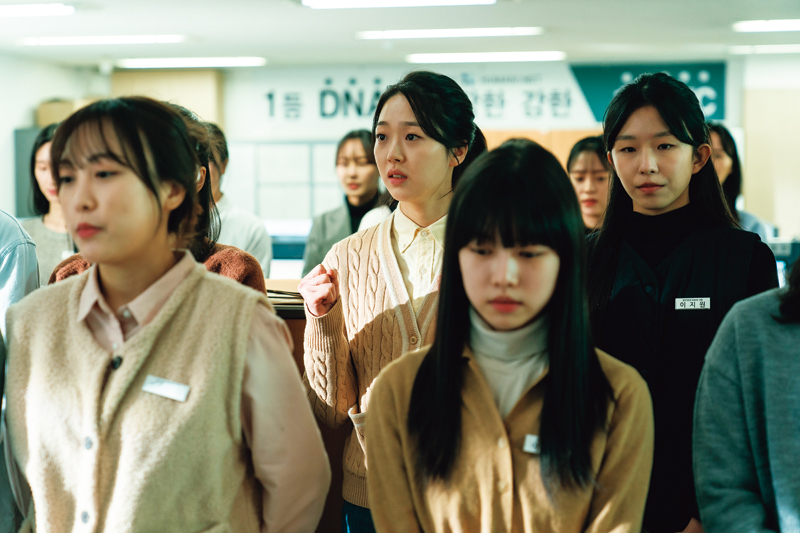
So-hee reports to work as part of an internship program. She must tolerate abusive customers and offer fake kindness every day to get passing approval.
© TWINPLUS PARTNERS INC.
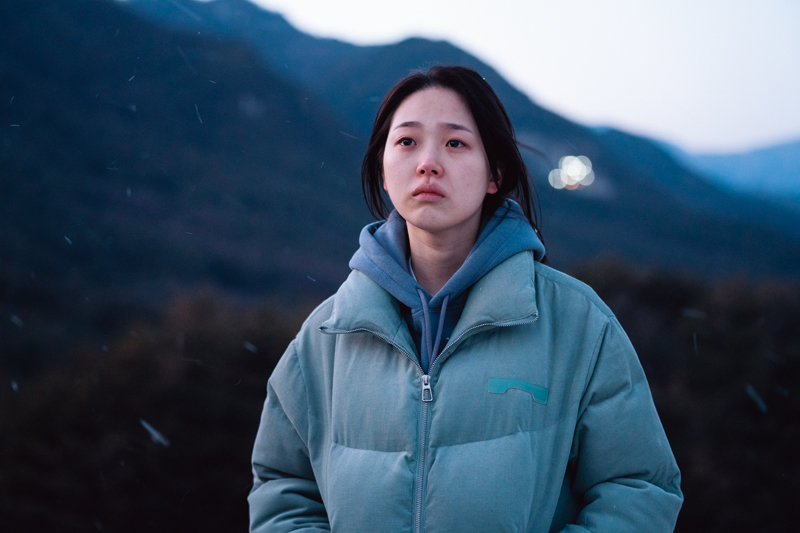
The joy of having an office job is short-lived. The cheerful girl who loved to dance becomes an emotionally spent person.
© TWINPLUS PARTNERS INC.
The first part of Next Sohee s the true experiences of the student who took her own life. The second part wonders if So-hee’s fate would have changed had at least one adult stood with her.
The first part is not merely a confrontational narrative of the company exploiting its workers. The problems are multi-faceted, and the solutions are even more challenging. As So-hee, played by Kim Si-eun, performs better than others, the company raises its targets, giving rise to tension among her colleagues. So-hee and her friend, who is better off, argue over who is in a more pitiful situation and end up hurting each other emotionally.
Thus, Next Sohee mines the structural contradictions of a competitive society where employers and employees clash, even vulnerable people end up butting heads, and those in the lower rungs fight to avoid slipping down further. In a society faced with ever-greater levels of inequality, convenience store owners struggling with debt quarrel over the minimum wage with part-time workers struggling to survive, and solidarity between workers laid off due to restructuring and those with secure jobs ends up in tatters. The turmoil originates from management, but even middle managers are not spared from unforgiving work conditions.
The film’s second part is steeped with confrontation. Detective Oh Yu-jin gradually embarks on a lonely pursuit, as she uncovers the truth behind So-hee’s suicide. It appears that there were several opportunities to prevent the death if appropriate measures had been taken, so Oh vows to prevent another So-hee. Every time she investigates those who are responsible, the recurring answer she receives is something like “If we don’t achieve results, we will also die.”
The situation cannot be blamed on just one institution or individual. It involves the company at which So-hee worked, the large corporation that subcontracted the call center operation to that company, the school that recommended the company to So-hee because it was a large corporation, and the Office of Education that supervises the high school, and so on. The film’s well-knit plot provides insight into wrongful acts that occur on a much larger scale than widely assumed.
Because of this, Oh had to portray both the determination to prevent such events from recurring and the helplessness of an individual confronting a massive system. The performance of actor Bae Doo-na, who played the role of Oh, is all the more convincing, her face filled with anguish, searching for So-hee’s traces. Director Jung July shared an anecdote at the Cannes Film Festival. “Before filming, I asked Doo-na to make a face that seemed like she hadn’t slept for days, and the next day, she really showed up with that face. I was genuinely surprised when I saw her.”
TRAMPLED DREAM
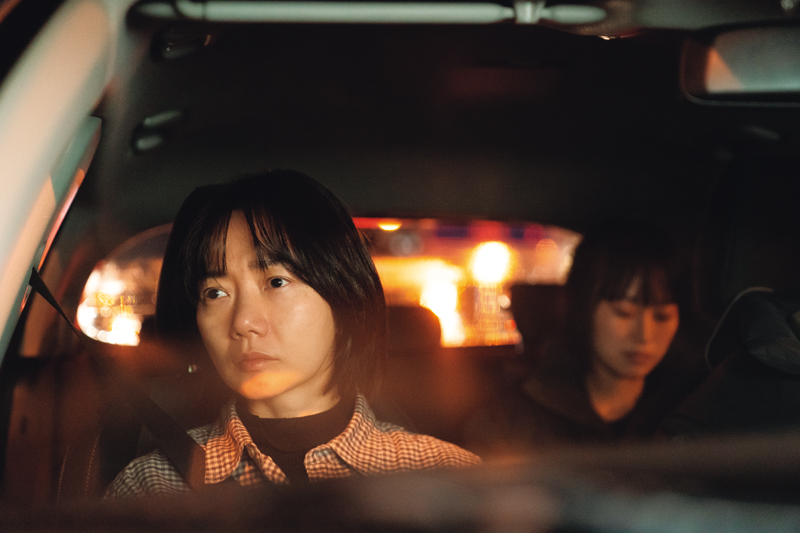
Detective Oh Yu-jin shuttles between her police station and So-hee’s workplace, school, and the Office of Education. The more evidence she uncovers, the more unsettled she becomes.
© TWINPLUS PARTNERS INC.
The most heart-wrenching scenes are stupefying. First, Oh tells So-hee’s parents, “Did you know she loved to dance? She was incredibly good at it.” Upon hearing this, her parents break down in tears. Then, at the end of the movie, Oh watches a video on So-hee’s phone. It is the only video left after she deleted all messages and apps before taking her own life. In the video, So-hee is seen dancing enthusiastically and smiling at the end. This time, tears stream down the detective’s face.
There seems to be a clear motive for showing So-hee’s dancing twice in a sorrowful manner. Here, the film introduces academic pressure as another source of the crushing stress experienced by youth. It poses the question whether Korean society truly recognizes the talents, aptitudes, preferences, qualities, tastes, hobbies, individuality, characteristics, and potential of the next generation. It also speculates whether the root of tragedies involving youth begins with a lack of understanding and support from older generations.
If Korean society expects students to abandon their dreams and only pursue majors with high employment potential; or if young people are forced to seek jobs solely based on their stability, fearing they will fall off a cliff otherwise; or if humanities majors feel belittled—then will the next So-hee be from a college-prep high school?
Is Korea creating a world where the next generation can nurture their dreams? The reason why international audiences at the Cannes Film Festival were moved by Next Sohee was probably because they were reminded of these questions in their own country.
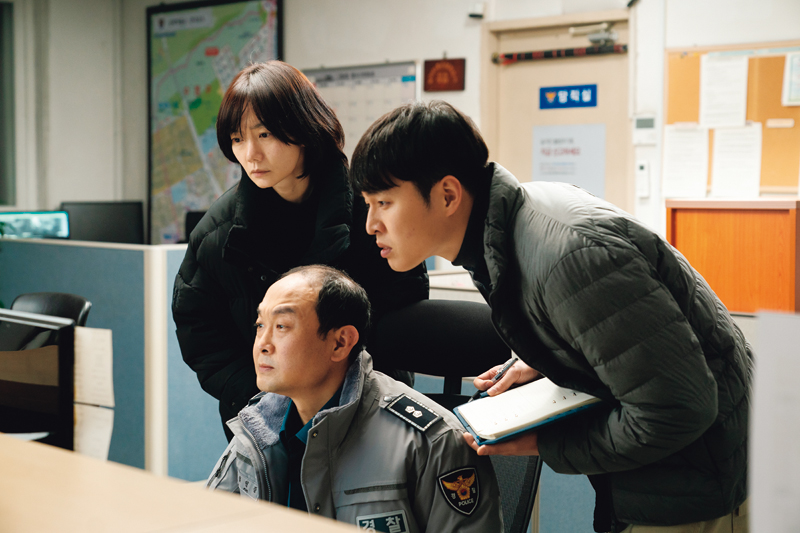
In discovering the cause of So-hee’s suicide, Detective Oh Yu-jin and fellow police officers realize how adults destroyed So-hee’s will to live and turned their back on her.
© TWINPLUS PARTNERS INC.